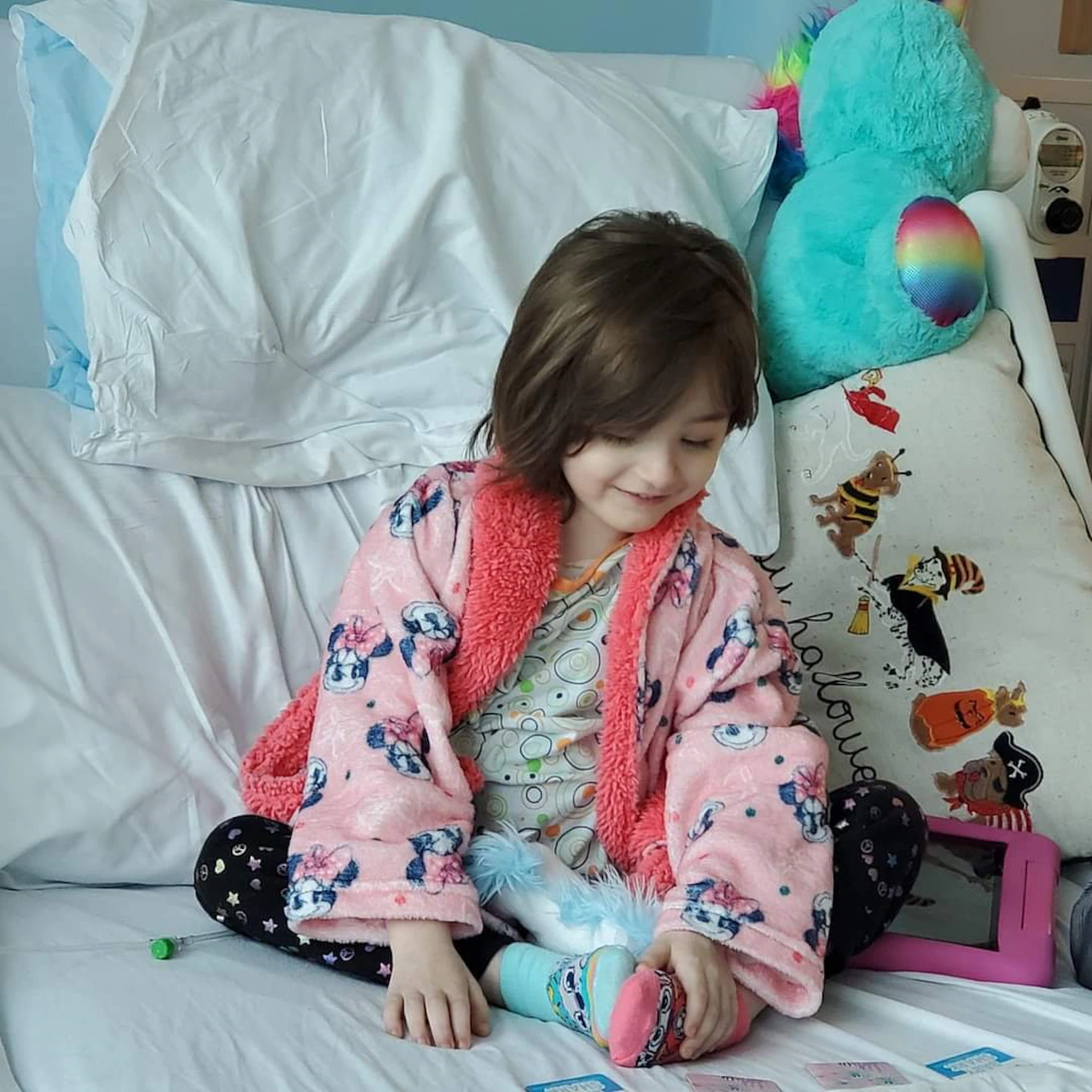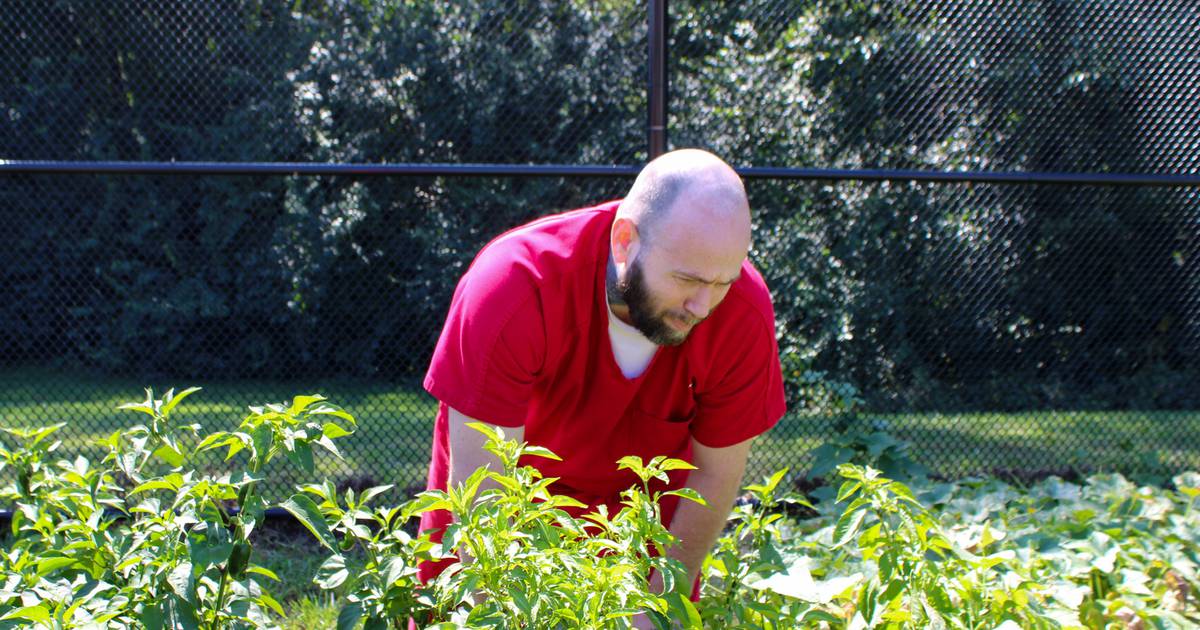
GRAND RAPIDS, MI — A young girl diagnosed with leukemia four years ago was able to receive effective new treatment thanks to a clinical trial at Corewell Health’s Helen DeVos Children’s Hospital in Grand Rapids.
Evelyn Sengelaub, 8, of Traverse City, was diagnosed with B-cell acute lymphoblastic leukemia (B-cell ALL) in November 2021.
“Of course, I broke down, but it was a relief in a weird way,” her mother, Sara DeLong said. “We were trying to find out for so long why my daughter can’t walk, why her limbs all hurt. She kept having fevers randomly, and nobody could really tell us what was wrong.”
Having run out of options that were close to home, DeLong took her daughter to Helen DeVos, where doctors gave her a diagnosis within an hour, she said.
Sengelaub underwent standard chemotherapy to manage her leukemia until Dr. Beth Kurt, a pediatric hematologist-oncologist with Helen DeVos, approached the family about enrolling their daughter in the clinical trial for a novel cancer medication called blinatumomab.
“At first, I was apprehensive. Like, ok that’s an extra drug that’s added onto this,” DeLong said.
At the time, Sengelaub was not considered high risk, but her cancer symptoms were not receding, which made her parents more willing to accept this novel treatment.
Sengelaub became one of 1,440 children enrolled in an international clinical trial for the new drug. The results, published in February in the New England Journal of Medicine, showed blinatumomab significantly reduced the risk of relapse for children with B-cell ALL when paired with chemotherapy.
B-cell ALL is the most common type of childhood cancer. Despite a high overall cure rate, relapsed B-cell ALL is a leading cause of cancer-related death among children, according to the study.
“Basically what (blinatumomab) does is it engages the patient’s own immune cells — called T cells — and causes those cells to recognize a protein marker on the surface of their B-cell leukemia cells in order to mark them to be destroyed,” Kurt said.
The trial involved children with newly diagnosed B-cell ALL who had an average or higher risk of relapse. Of those patients, 722 were assigned to chemotherapy alone, and 718 were assigned to receive blinatumomab plus chemotherapy.
With the addition of the medication to standard chemotherapy, the estimated three-year disease-free survival rate among patients increased to about 97.5%, compared to around 90.2% with chemotherapy alone.
“One of the most exciting pieces of it is that medication doesn’t add a whole lot of toxicity but does make a major impact on overall disease-free survival, which is incredible,” Kurt said.
Sengelaub received blinatumomab in addition to her regular chemotherapy for two separate five-week periods during the trial, her mother said.
“During that time, she had a lot of ups,” DeLong said. “She hit remission, and we didn’t have an issue with any side effects, anything like that.”
Nearly four years later, Sengelaub is doing “amazing” and has shown no sign of relapse, her mother said. She still receives treatment in Traverse City to monitor her symptoms.
“We just do a lab draw and see the results just make sure everything’s ok,” DeLong said.
The future viability of these trials, however, is uncertain as the Trump administration earlier this year attempted to slash critical funding for life-saving research.
Even before recent threats to medical research funding, only a small fraction of the federal budget was devoted to childhood cancer, Kurt said.
“Any cuts to funding for cancer research could have tremendous negative impact on not only our friends and neighbors, but our kids as well,” she said.
About 15,000 children and teenagers, or one in 285 children, are diagnosed with some form of childhood cancer in the U.S.
“Without that clinical trial, Evelyn wouldn’t have had access to this new and exciting medication,” Kurt said. “Until we show that these medications have a safety track record and efficacy in children, they’re just not readily available for all kids.”
Helen DeVos Children’s Hospital is a National Cancer Institute Community Oncology Research Program and has been recognized by the Children’s Oncology Group as a top-enrolling program for therapeutic and non-therapeutic trials in the last three years.



